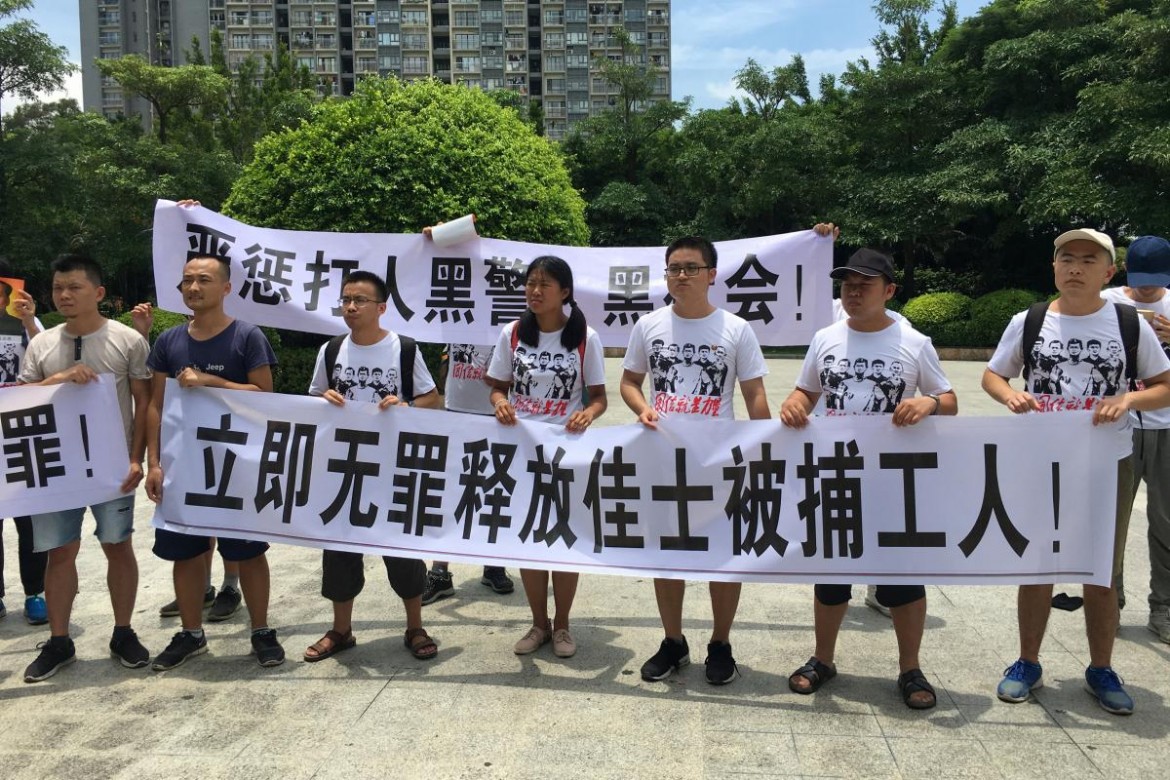Analysis
Xi reveres Marx but despises workers who organize
Is this just one of the many contradictions of China today? Student organizers have joined the cause of workers in Shenzhen, but they’ve met with repression from the Communist Party.

During the bicentennial celebrations of Karl Marx’s birth, Chinese President Xi Jinping said Marx’s ideas were “totally correct.” At the same time, a group of Chinese workers and students who call themselves Maoists and Marxists are being arrested, beaten and disappeared for demanding the right to set up an independent union.
This is the new era under Xi, during which China’s international image has blurred outside commentators’ perspective of what is happening inside the country. Xi, who recently removed the two-term limit for the office of the President and further centralized all forms of control within the party, is repressing any form of opposition, and the story of the students and the workers from Shenzhen Jasic Technology stands as proof.
In recent days, at least 12 activists have disappeared, presumably kidnapped by the usual small groups of thugs hired by the Party or the unions to make embarrassing problems go away. The disappearances have taken place in Beijing, Guangzhou, Shanghai, Shenzhen and Wuhan. According to the information that has gotten out so far, one of those kidnapped, Zhang, was leading the search for the activists and workers that had been detained over the previous months. According to AFP, one witness said the men who arrested Zhang also beat up witnesses and prevented them from taking photos.
The Jasic Workers Solidarity Group put out a powerful statement: “Peking University acquiesced to the kidnapping—this is another crime universities have committed against progressive students and the leftwing community.”
The protests by the workers at the Jasic factory in Shenzhen, which makes industrial machinery for welding, had garnered high visibility in August following the arrest of the leaders of the struggle. Some groups of students who called themselves “Marxists and Maoists” declared their solidarity with the workers, writing a letter to Xi in which they underlined that they were not any kind of “foreign power.” However, the new Xi era is characterized by repression against anything that contradicts the official line. The Jasic workers had gotten a green light from the All-China Federation of Trade Unions (ACFTU) to set up grassroots organizations, but then the ACFTU reversed course. Predictably, arrests, forced disappearances and threats soon followed.
China is beginning to feel the effects of the tariff war with the US, and a drop in consumption and price increases, though still under control, are beginning to worry the Party. Student and worker protests represent an additional threat to the leadership and to the mantra coming from Beijing of “maintaining stability.”
One aspect is certainly striking: Xi, who has lavished much praise on Marx and has worked to revive some aspects of Maoism—such as the “mass line”—now finds himself confronted by activists who declare themselves Marxists.
Are these the internal contradictions of the strange political animal which is China today? The explanation seems to be there in the words of the young people and workers who are engaged in the struggle: China’s growth has held too many people back, especially the workers, and others more are condemned to suffer in the future—think, for instance, of the “digital workers.” As the activists and workers are saying, the class struggle in China has never been as relevant a topic as it is today.
Originally published at https://ilmanifesto.it/giovani-marxisti-e-con-gli-operai-ma-il-pcc-li-reprime/ on 2018-11-13
